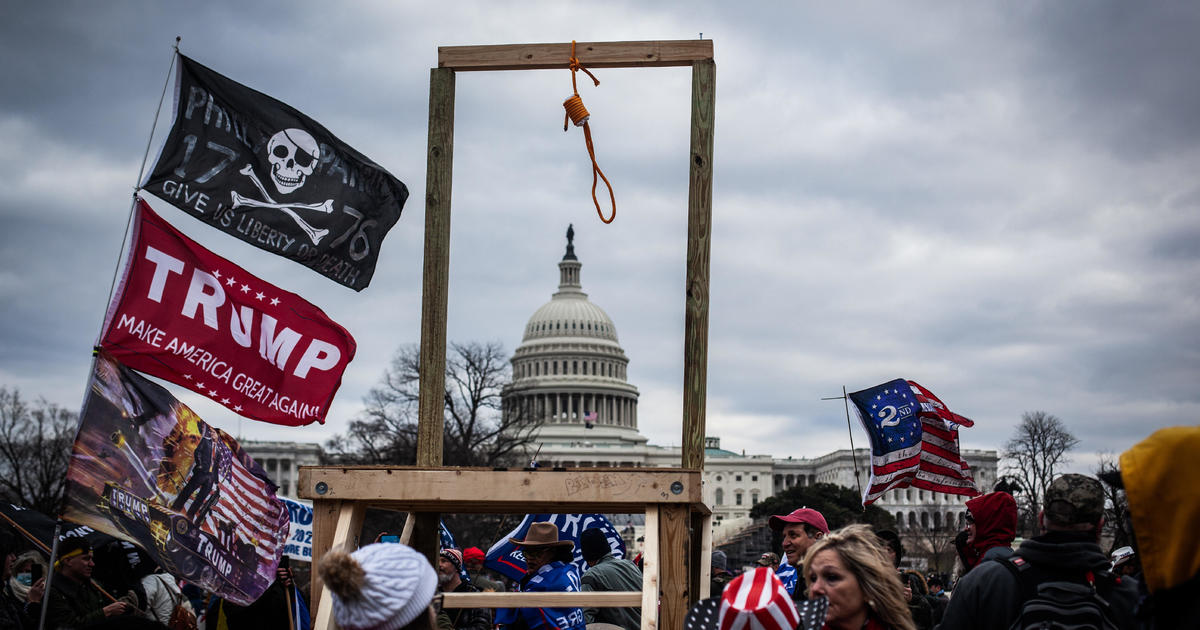A Democratic Congresswoman released a nearly 2,000-page report compiling social media posts about the 2020 election of House Republicans who voted to overturn the results. The report describes how some Republicans relentlessly pushed disinformation and conspiracy theories about electoral fraud, and continued on even after Trump supporters attacked the US Capitol.
“Like former President Trump, any elected member of Congress who helped and incited the insurrection or incited the attack seriously threatened our democratic government,” writes Congresswoman Zoe Lofgren in the introduction to her report.
The California lawmaker suggests that social media posts can be used as evidence for potential punishments for these members of Congress, including expulsion and any criminal charges arising from the Capitol insurrection.
“Statements that are readily available in the public arena can be part of any consideration of Congress’ constitutional prerogatives and responsibilities,” writes Lofgren. “Consequently, I asked my team to take a quick look at the social media posts of members who voted to revoke the 2020 presidential election.”
All information in the report was already publicly available, but this is the first comprehensive analysis of how lawmakers have relentlessly promoted falsehoods about the election on Facebook and Twitter. It compiles posts between November 3, 2020 and January 31, 2021 of the 147 House Republicans who voted to overturn the election result.
The report shows that some of former President Donald Trump’s most expressive supporters in the House have posted more than 100 attacks on the integrity of the election in less than three months.
Representative Paul Gosar it was the most prolific, with its posts occupying 177 pages of the report. The Arizona Republican’s messages include false claims that his own state “stole” the election and supported protests against local election officials. He wrote in a post that officials who were “stealing” votes were committing “sedition and betrayal”.
Gosar’s office declined to comment on CBS News.
Posts by Alabama representative Mo Brooks, one of the first members of Congress to publicly challenge Trump’s defeat, occupy 123 pages of the report. Messages from Congresswoman Marjorie Taylor Greene, a Georgia Republican sworn in to Congress on January 3, span nearly 100 pages.
The posts echo many popular conspiracy theories this later belied through investigations, including allegations that dead people voted and that Dominion’s voting machines turned votes to Joe Biden. Some House Republicans posted selfies of “Stop the theft” protests against the results of the elections. Some also told their supporters that Trump really won the election.
These falsehoods fed the crowd of Trump supporters who invaded the Capitol on January 6 while Congress counted the electoral votes that confirmed Biden’s victory. The siege led to five deaths, and Mr. Trump being accused for the second time just a week before the end of his term.
But the report shows that even that did not change the tone of some Republicans, who continued to post on election “irregularities” and “frauds” days after the turmoil. Several compared the Capitol revolt with Antifa, Black Lives Matter and the racial justice protests across the country in 2020.
“Those who foment insurrection and spread conspiracy theories have blood on their hands,” wrote Taylor Greene in a Jan. 7 tweet linking Democrats to mob violence. “They must be expelled.”
